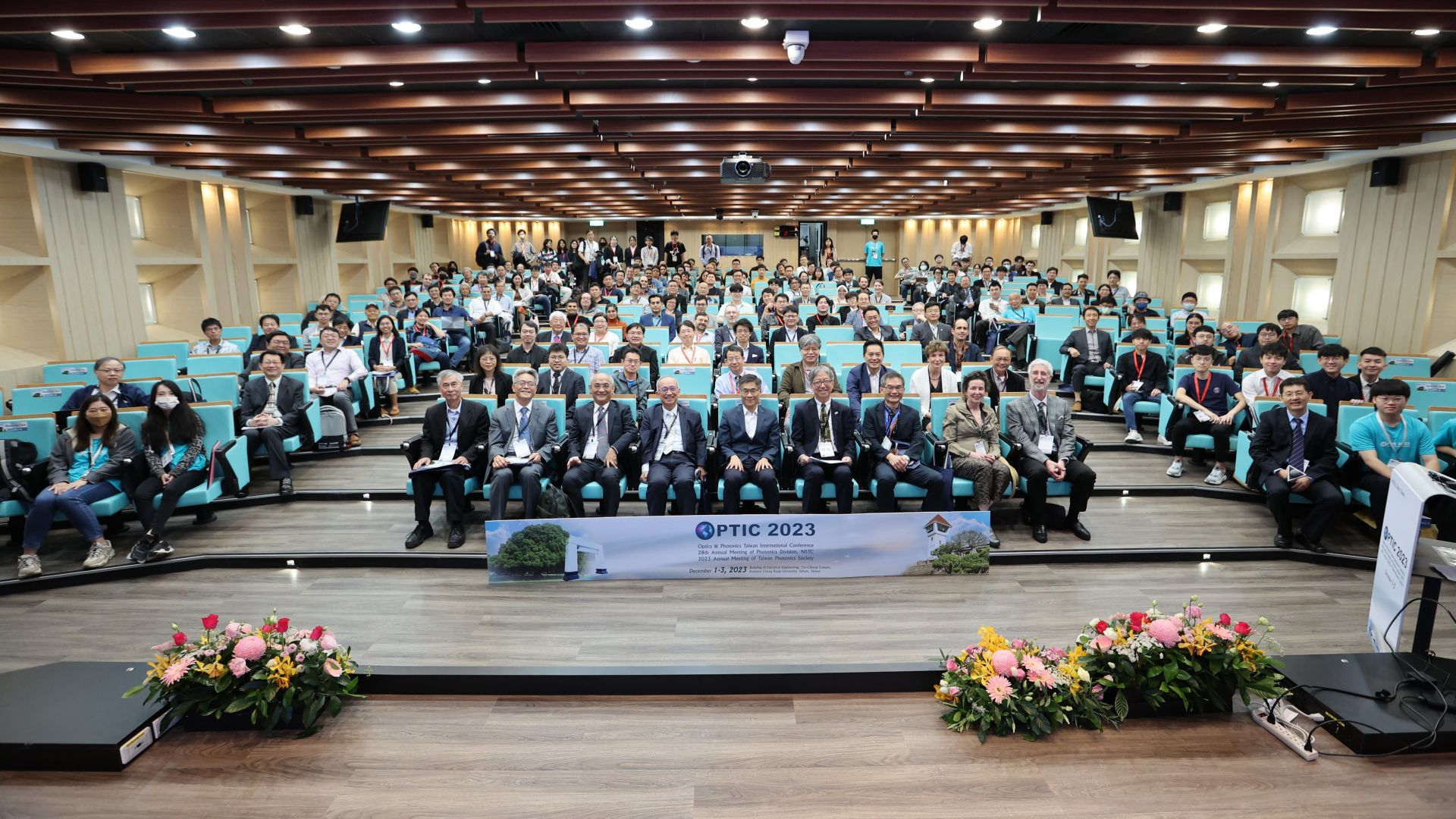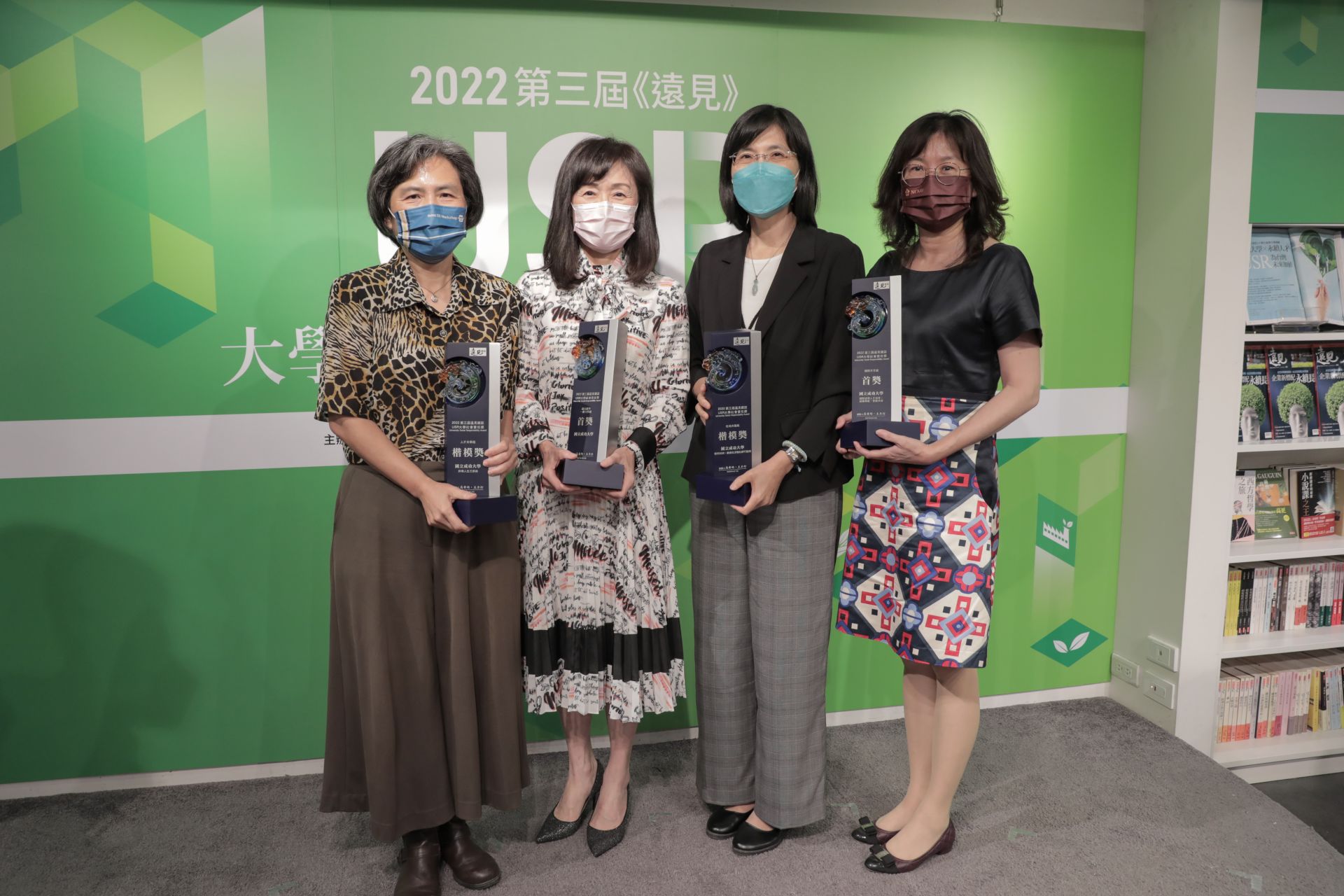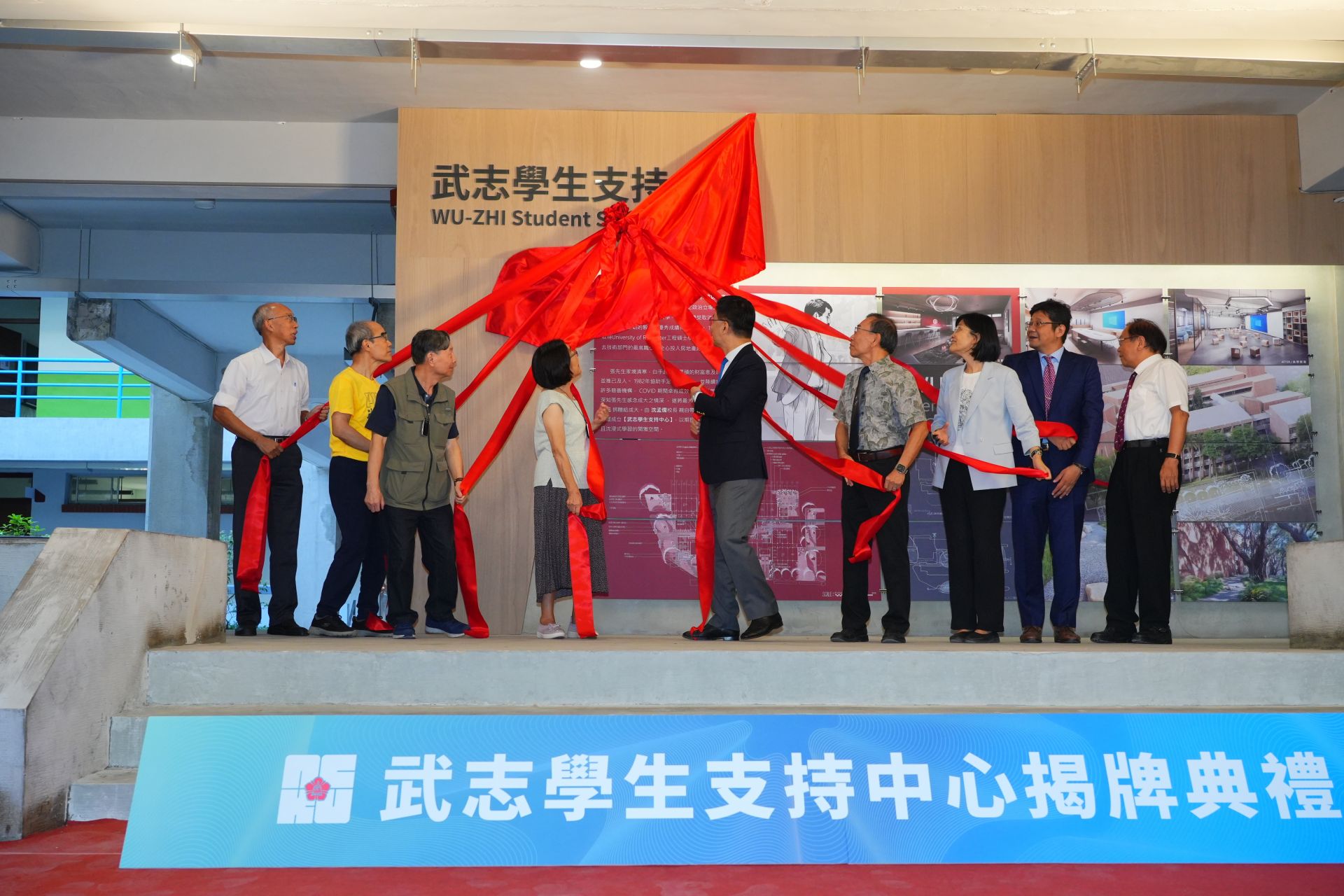This year, the Research Center for Humanities and Social Sciences (CHASS) at National Cheng Kung University (NCKU) launched the "Rooted and Regenerated" series. Focusing on Taiwanese studies and University Social Responsibility (USR), the series covers seven major themes: healthcare, environmental sustainability, industry symbiosis, landscape space, cultural translation, local education, and technology and humanities. The goal is to broadly engage faculty, students, and the public in critical discussions on humanities and social issues. Director Cheng-Ta Yang expressed the hope that this initiative will reshape and inspire more humanities-based thinking, aiming to become a think tank for NCKU, Tainan, and even the nation.
The series of events hosted by th CHASS officially began on March 28. The first session invited former Minister of Education, Professor Jung-Tsun Huang, who shared insightful perspectives on "Rethinking Faculty and Student Participation under USR" . The event attracted over a hundred faculty, students, and individuals interested in the future development of higher education. During the Q&A session, there was active participation, with many students and young scholars asking questions about how universities can balance academic and social responsibilities, as well as the challenges faced by faculty in promoting USR. Professor Huang patiently answered these questions and engaged in dialogue with the audience, using humor to guide them in deeper reflections on the significance of university social responsibility.
Professor Jung-Tsun Huang, former Minister of Education and former President of the Examination Yuan, has extensive research and practical experience in Taiwan's higher education and academic development. During his lecture, he emphasized that universities should not only serve as institutions for knowledge dissemination and research but also actively take on social responsibility. He pointed out, "Each university has its own unique USR focus, depending on what it is best suited to do." He believes that "every university should find its own niche in order to effectively carry out its mission and respond to societal needs." Additionally, he highlighted the crucial role of faculty in university social responsibility, urging more faculty and students to engage in local development and integrate academic research with social practice, thereby enhancing the university’s contribution to society.
Professor Huang further explored the role of universities in addressing global issues, emphasizing that top-tier universities should actively engage in critical and far-reaching topics such as global climate change, energy, and artificial intelligence. By leveraging expertise, interdisciplinary collaboration, and international exchange capabilities, universities can fully fulfill their social responsibility. He believes that both faculty and students should collaboratively develop innovative, cross-disciplinary solutions and policy responses. Additionally, universities should design and implement effective systems and incentives for teaching and research services, encouraging government departments to fulfill their responsibilities. This approach, he argues, will help universities balance local advantages with international competitiveness, achieving their staged goals in an ever-changing world.
Additionally, Professor Huang shared his experience of transitioning from academia to public service, emphasizing the importance of applying one's expertise across different fields to serve society. Drawing from his background in psychology and education, he has long focused on Taiwan’s educational development and social context, while actively engaging in public affairs. Through this, he has exemplified the qualities of a scholar and demonstrated a strong sense of humanistic commitment.
In addition to Professor Jung-Tsun Huang’s keynote speech, CHASS also hosted another session featuring Professor Mario Fifić from Serbia and Associate Professor Yu-Chin Chiu from Purdue University’s Department of Psychological Sciences. They co-hosted the lecture titled "Wandering Thoughts and Boundaries: Cognitive Psychology × Life Narratives and Exploration," where they engaged with faculty and students to discuss how scientific immigrants adapt, survive, and find their self-identity in the United States.
Professor Mario Fifić, a faculty member in the Department of Psychology at Grand Valley State University in the United States, gave a talk titled "Lost in Translation? How to Survive (and Slay) Grad School Abroad!" where he shared his personal experiences of studying and conducting research abroad. He focused on topics such as cross-cultural adaptation, language barriers, and academic challenges. Through lively interaction with the audience, he encouraged students to set goals, persevere, and maintain a positive mindset when facing the challenges of studying and researching abroad. He emphasized, "The academic journey is not only a pursuit of knowledge but also a process of self-discovery and the development of resilience."
Next, Associate Professor Yu-Chin Chiu from the Department of Psychological Sciences at Purdue University combined scientific rigor with humanistic insights to guide the audience in exploring how cognitive psychology can deepen our understanding of ourselves and the world around us. She provided examples of common psychological phenomena in daily life, such as decision-making biases, memory processes, and perceptual illusions, using vivid case studies to illustrate how psychology influences our behavior and thinking. She stated, "Through cognitive psychology, we can more consciously understand our own behavior and make wiser choices in learning, interpersonal interactions, and career planning."
The two captivating lectures not only offered psychological perspectives from different cultural backgrounds but also allowed participants to understand how psychology can be applied to daily decision-making through real-life examples. The speakers encouraged everyone to use psychological thinking to tackle life’s challenges and to transform knowledge into a positive influence on society.
The "Rooted and Regenerated" series organized by the Research Center for Humanities and Social Sciences this year aims to explore how universities connect with society and promote the regeneration of knowledge and cultural roots through diverse topics and interdisciplinary dialogue. The series will continue with several exciting lectures and discussions, inviting scholars, experts, and social practitioners to participate and deepen the dialogue and collaboration between universities and society. We sincerely invite both internal and external participants to stay engaged and join future events. For more details, please visit the event's official website: Rooted and Regenerated.
The series of events hosted by th CHASS officially began on March 28. The first session invited former Minister of Education, Professor Jung-Tsun Huang, who shared insightful perspectives on "Rethinking Faculty and Student Participation under USR" . The event attracted over a hundred faculty, students, and individuals interested in the future development of higher education. During the Q&A session, there was active participation, with many students and young scholars asking questions about how universities can balance academic and social responsibilities, as well as the challenges faced by faculty in promoting USR. Professor Huang patiently answered these questions and engaged in dialogue with the audience, using humor to guide them in deeper reflections on the significance of university social responsibility.
Professor Jung-Tsun Huang, former Minister of Education and former President of the Examination Yuan, has extensive research and practical experience in Taiwan's higher education and academic development. During his lecture, he emphasized that universities should not only serve as institutions for knowledge dissemination and research but also actively take on social responsibility. He pointed out, "Each university has its own unique USR focus, depending on what it is best suited to do." He believes that "every university should find its own niche in order to effectively carry out its mission and respond to societal needs." Additionally, he highlighted the crucial role of faculty in university social responsibility, urging more faculty and students to engage in local development and integrate academic research with social practice, thereby enhancing the university’s contribution to society.
Professor Huang further explored the role of universities in addressing global issues, emphasizing that top-tier universities should actively engage in critical and far-reaching topics such as global climate change, energy, and artificial intelligence. By leveraging expertise, interdisciplinary collaboration, and international exchange capabilities, universities can fully fulfill their social responsibility. He believes that both faculty and students should collaboratively develop innovative, cross-disciplinary solutions and policy responses. Additionally, universities should design and implement effective systems and incentives for teaching and research services, encouraging government departments to fulfill their responsibilities. This approach, he argues, will help universities balance local advantages with international competitiveness, achieving their staged goals in an ever-changing world.
Additionally, Professor Huang shared his experience of transitioning from academia to public service, emphasizing the importance of applying one's expertise across different fields to serve society. Drawing from his background in psychology and education, he has long focused on Taiwan’s educational development and social context, while actively engaging in public affairs. Through this, he has exemplified the qualities of a scholar and demonstrated a strong sense of humanistic commitment.
In addition to Professor Jung-Tsun Huang’s keynote speech, CHASS also hosted another session featuring Professor Mario Fifić from Serbia and Associate Professor Yu-Chin Chiu from Purdue University’s Department of Psychological Sciences. They co-hosted the lecture titled "Wandering Thoughts and Boundaries: Cognitive Psychology × Life Narratives and Exploration," where they engaged with faculty and students to discuss how scientific immigrants adapt, survive, and find their self-identity in the United States.
Professor Mario Fifić, a faculty member in the Department of Psychology at Grand Valley State University in the United States, gave a talk titled "Lost in Translation? How to Survive (and Slay) Grad School Abroad!" where he shared his personal experiences of studying and conducting research abroad. He focused on topics such as cross-cultural adaptation, language barriers, and academic challenges. Through lively interaction with the audience, he encouraged students to set goals, persevere, and maintain a positive mindset when facing the challenges of studying and researching abroad. He emphasized, "The academic journey is not only a pursuit of knowledge but also a process of self-discovery and the development of resilience."
Next, Associate Professor Yu-Chin Chiu from the Department of Psychological Sciences at Purdue University combined scientific rigor with humanistic insights to guide the audience in exploring how cognitive psychology can deepen our understanding of ourselves and the world around us. She provided examples of common psychological phenomena in daily life, such as decision-making biases, memory processes, and perceptual illusions, using vivid case studies to illustrate how psychology influences our behavior and thinking. She stated, "Through cognitive psychology, we can more consciously understand our own behavior and make wiser choices in learning, interpersonal interactions, and career planning."
The two captivating lectures not only offered psychological perspectives from different cultural backgrounds but also allowed participants to understand how psychology can be applied to daily decision-making through real-life examples. The speakers encouraged everyone to use psychological thinking to tackle life’s challenges and to transform knowledge into a positive influence on society.
The "Rooted and Regenerated" series organized by the Research Center for Humanities and Social Sciences this year aims to explore how universities connect with society and promote the regeneration of knowledge and cultural roots through diverse topics and interdisciplinary dialogue. The series will continue with several exciting lectures and discussions, inviting scholars, experts, and social practitioners to participate and deepen the dialogue and collaboration between universities and society. We sincerely invite both internal and external participants to stay engaged and join future events. For more details, please visit the event's official website: Rooted and Regenerated.
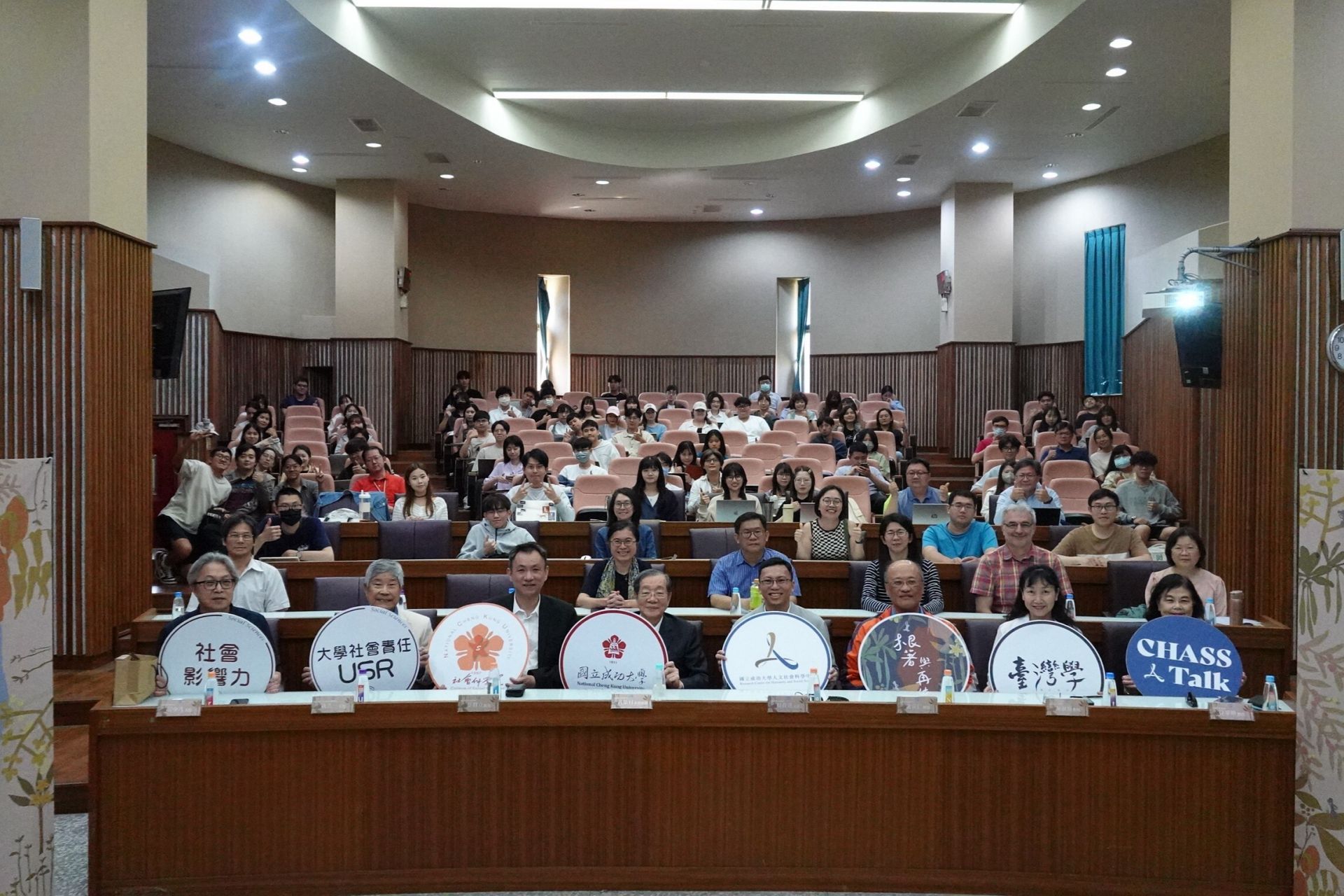
The first event of the "Rooted and Regenerated" series, organized by CHASS, has officially launched.
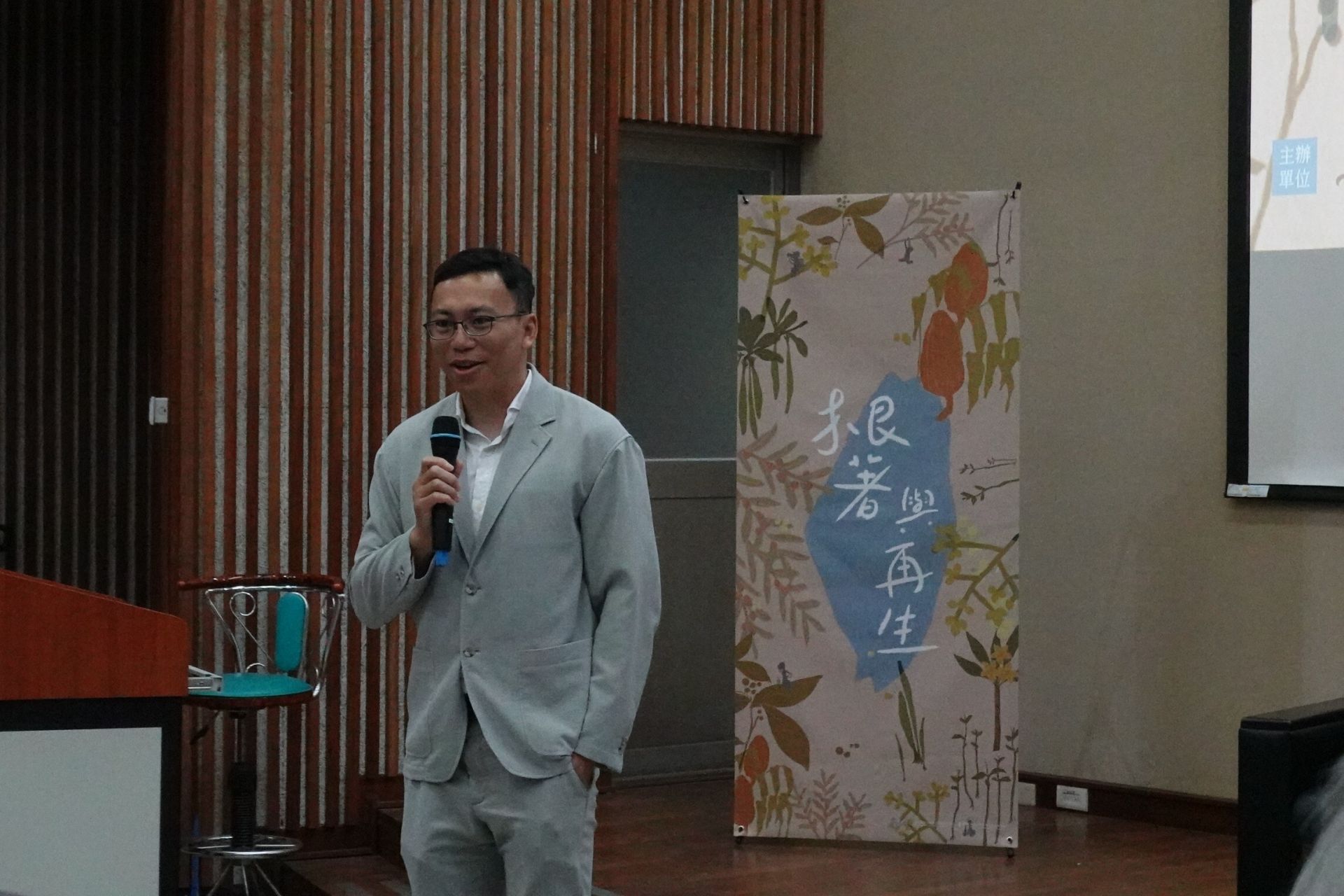
Director Cheng-Ta Yang of CHASS expressed his hope that discussions on humanities and social issues will reshape and inspire more critical thinking in the field.
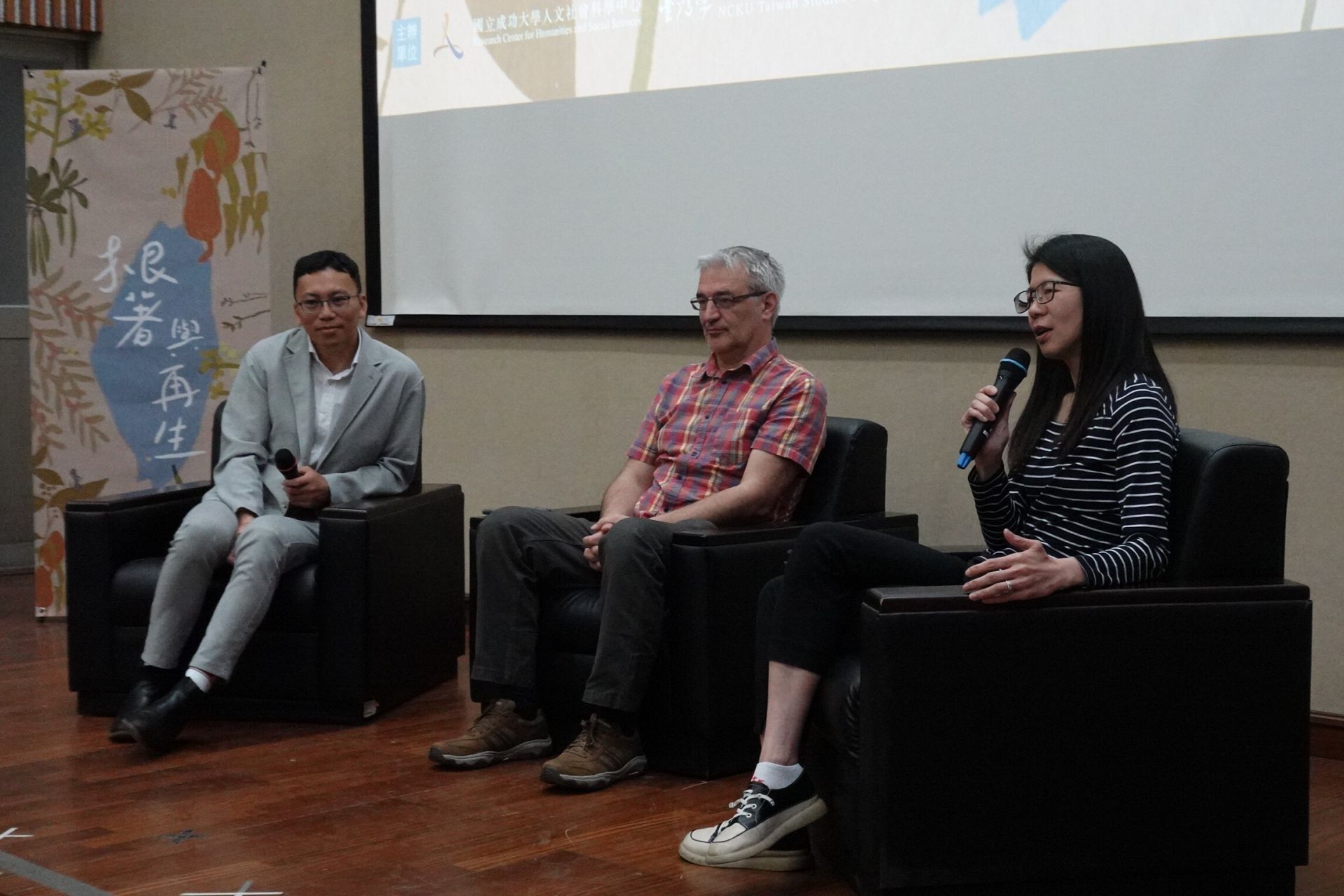
Professor Mario Fifić (center) from Serbia and Associate Professor Yu-Chin Chiu (right) from the Department of Psychological Sciences at Purdue University, together with NCKU faculty and students, engaged in a discussion on how scientific immigrants adapt, survive, and find their self-identity in the United States.



